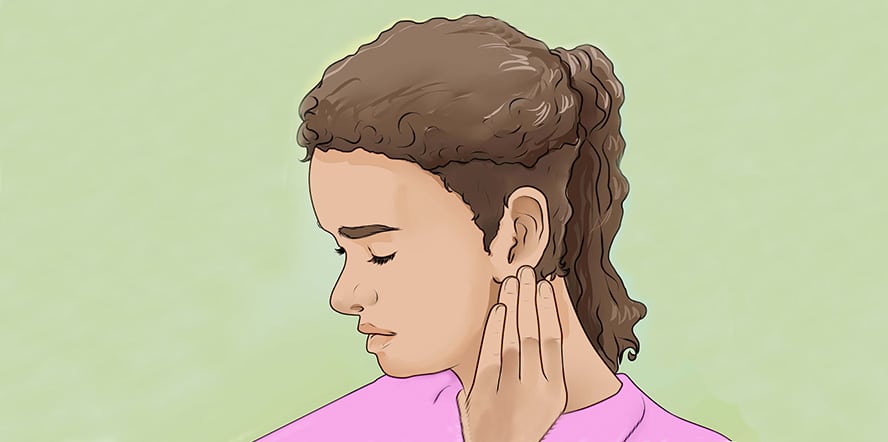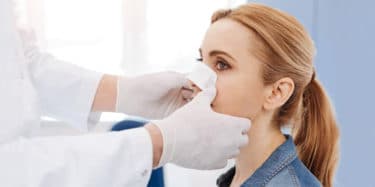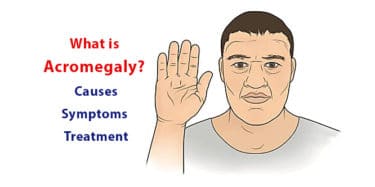Lymph node swelling is generally caused by bacteria or viruses and rarely develops due to cancer. It is an indication that the body is fighting against disease. The swelling is taken down when treated. The lymph nodes play a crucial role in fighting against infections. They capture and filter bacteria and viruses, leaving other parts of body uninfected. The lymph nodes can be noticed more in armpits, jawbone, neck, and groin. The protrusions felt in these areas may be lymph node growth. Treatment generally depends on the cause of the infection. Treatment may sometimes be resting at home or taking some medications depending on severity of infection. Lymph node swelling requires the supervision of a doctor.
Table of Contents
What is lymph node?
Adenoids (lymph nodes) are small nodes filtering clear lymph fluid circulating in the lymphatic system. They also store white blood cells which kill invading organisms, and protect the body against diseases. They play a vital role in fighting against infections.
The role of the lymph nodes
When bacteria, viruses, and other organism which may cause disease pass through the lymphatic ducts, they are blocked by the lymph nodes and they accumulate these harmful organisms by keeping them inside.
Where are the lymph nodes located?
- Armpits,
- Gill,
- Both sides of the neck,
- Both sides of the groin,
- Above the collarbone

Causes of Lymph node swelling
Lymph nodes swell due to an infection of the area. For example, lymph nodes in the neck may swell as a result of an upper respiratory infection, such as a cold. Lymph node swelling shows the lymphatic system works to save the body from harmful organisms. (1)
Causes of lymph node growth
- Ear infection
- Sore throat
- Cold or flu
- Sinus infection, Measles
- Dental abscess
- Mononucleosis (the kissing disease)
- Skin or wound infections
- Sexually transmitted infections (AIDS, syphilis, gonorrhea)
- Rheumatoid arthritis
- Zoster, Tuberculosis and Lupus,
- Lymphoma, Leukemia and cancers metastasizing
- Medicines containing phenytoin and antimalarial drugs
Lymph node swelling symptoms
- Coughing
- Sore throat
- Fatigue
- Fever
- Shivering
- Runny nose
- Sweating
- A swelling is felt in the lymph nodes in the size of a pea or cherry
- Touching the swollen node may be painful
- Swollen lymph nodes under the chin or on both sides of the neck may hurt while turning your head or chewing
- Swollen lymph nodes in the groin can cause pain while walking or bending
Lymph node growth indicates that there is a health problem. The growth can be noticed easily. In some cases, it also begin to shrink as other symptoms disappear. If you feel painful swelling in your lymph nodes and it lasts more than a few days, consult your doctor. Swollen lymph nodes without any pain or tenderness can be a symptom of a serious health condition such as cancer.
Lymph node examination
- Medical history: When and how the lymph nodes swell and the symptoms experienced by the patient are important in the disease diagnosis. Some diseases or medications may also cause lymph node swelling. Therefore, the medical history of the patient will primarily be asked by the doctor.
- Physical examination: The doctor checks the size, touch sensitivity, temperature and tissue of the lymph nodes. (2)
- Blood tests: Blood tests can be done to confirm or eliminate certain diseases or hormonal disorders. A complete blood count is done, mostly for evaluation of general state of health and detection of a range of disorders, including leukemia.
- Imaging tests: An X-ray, MRI, ultrasound or computed tomography (CT) scan of the swollen area may be needed to determine sources of the infection or to detect tumors.
- Lymph node biopsy: Sometimes a biopsy may be required for the most accurate diagnosis. This is a simple procedure. A sample of cells is taken from the lymph node through needle-like medical instruments. In some cases, doctor may remove entire lymph node. The removed sample is then examined in a laboratory environment. (3)
Lymph node swelling Treatment
How to treat Lymph node growth
Treatment may vary depending on the causes of lymph node swelling. Sometimes the swollen lymph nodes can shrink spontaneously without any treatment. In such cases, the doctor only prefers to monitor the patient. If the swelling is caused by an infection, you may need to take antibiotics or antiviral drugs.
In case of pain or inflammation, medicines containing aspirin and ibuprofen may help. The lymph node swelling caused by a cancer may not shrink until the cancer is treated. Sometimes tumor or affected lymph nodes must be removed during cancer treatment. (4)
Chemotherapy is also a part of cancer treatment. The doctor will decide on the most appropriate treatment for the patient. Methods relieving the symptoms of lymph node swelling Sometimes simple methods that can be applied at home can be relieving. For example:
- Apply warm and wet compresses to the area of swelling
- Drink plenty of water and fresh juice
- Rest to heal faster. For more: >>> Swollen lymph nodes




